Knowledge Networking Portal for Sustainable & Responsible Tourism










 CoP (Out)27, in the Winter of 2022 – A Global Policy Journey Going Green 2030
CoP (Out)27, in the Winter of 2022 – A Global Policy Journey Going Green 2030
04 Nov 2022 - Gordon Sillence, Monchique (Portugal)
Introduction
I am inviting readers to take a broader view of tourism in our troubled times at this end of 2022 CoP 27 turning point, and to recognise our need to professionally stand up against greenwash policies and time-washing processes, and pay attention to critical issues underpinning tourism activity, offering solutions to problems not more blah blah blah this year again.…
‘It’s about time tourism stakeholders stop believing political fairy tales and understand that to make 2030 a fairy tale ending we need sustainable development as a whole package – Marshall-planned and bank-financed on an international scale to support global civil society, not governments or corporates, and to protect key habitats and species, not pay off bankers and bureaucrats. Or, in the onslaught of multiple crises our much-needed tourism businesses in our much-loved destinations – wherever we are – will face fearful uncertainty and fail en masse here and there, now and again, as we saw during Covid. No-one escape Global Change …’
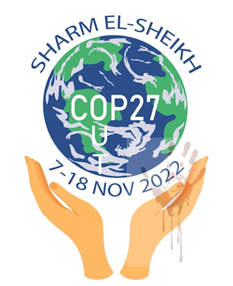
A Policy Journey to Agenda 2030 - the 2015 SDGs on Trial
With the first half of November given over to a sterile UN Action on the climate part of Global Change (SDG 13 Climate Action), exasperation at inaction comes from the very top – this year’s IPCC Report authoring team so critical of lack of government and corporate implementation - so why bother with the CoP(Out)26 Glasgow UK follow-up, being held in Egypt from next week under the auspices of a national dictatorship? I won’t be going there this time, but I was in the Sharm-el-Sheik Egyptian flagship destination for the 2018 CoP15 on Biodiversity (SDG 14,15 Life below Water and Life on Land) . At last year’s CoP 26 the links between the two UN processes of Climate Change and Biodiversity have shown a clear picture of the green -washing, time-washing political maintenance of the post WW2 Bretton Woods status quo and the resulting tragedy of the Commons that is now upon us al 70 years in the making. Wherever you look, water, forests, farms, mountains, cities are suffering the consequences of a rapacious nationalist luxury growth model …
Johannesburg +20
Anthropogenic Global Change evidenced in multiple sócio-economic and environmental challenges is upon us, with biodiversity loss and extreme weather events about to cripple global supply chains and the biological integrity of our habitat as the 1.5°C target fades into history… And that’s without viral wars, mass depression, greed and ignorance steering this emergency on planet earth. By 2030 we will be in the death throes of a Brave New World of elitist military-industrial economics, with the national economies of several countries possibly run into the ground by their big data algorithms, ironically…
Of course there will still be a holiday option to travel our One Planet … and the dreams of over one hundred countries around the world to develop sustainable tourism at the WSSD 2002 in Johannesburg hang in the balance, with enough for everyone’s need, but not enough for everyone’s greed.
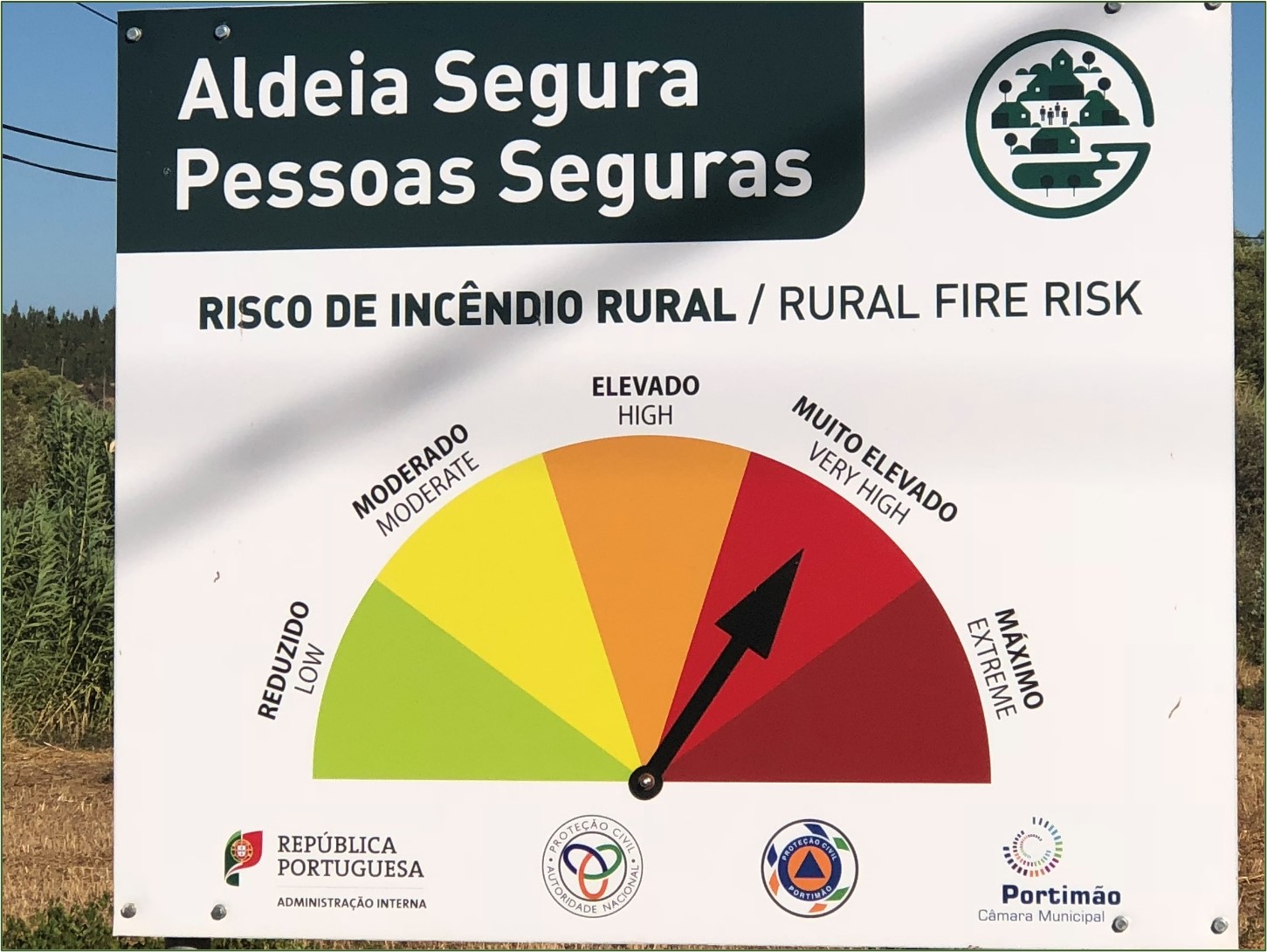
Life in a Local Village – Marmelete, Monchique BioPark Network 2022
Rio +30
The alternative of Agenda 21 sustainability offers the opposite vision, one in which we get past elitist nationalist geo-political globalised capitalism and join joined-up government with civil society, evolving from the current situation in which national governments support corporate multi-national interests, and instead developing our institutions and their economic activities into something more considerate and humane. There is an urgent need to shape global and national policy lines into regional and local programmes for the major resourcing of civil society - where local government resides alongside the other Major Groups - to immediately and effectively implement evidenced-based adaptation and mitigation strategies in the interests of people and planet, i.e. stimulating local and regional sustainability planning and development.
Stockholm +50
If not from the podium, it is clear to all in the policy world in the corridors and coffee breaks that the local level is overwhelmed by current fluctuations and instability in the international level of governance. International politics has become UN Bretton Woods archaic and Security Council dominated, unfit for managing the UN system to manage the globe. Never more than before do we need to ensure the UN’s mission of peace as the base for sustainable development yet … Once again clear for all in Ukraine, the finance capitalist political few have institutionalised means of oppressing the now billions of the ordinary many, but this time with AI enhanced mega corporate cyber capabilities and a full lockdown conflict agenda for working and middle classes alike.
Furthermore, the 50 years of Down to Earth talk on the woes of nature and the death throes of indigenous cultures round the world has been green-washed over by the media, whilst the biodiversity and habitat loss figures underline the failure of implementation of a new Millennium path to sustainability that the UN and national governments are so often accused of in their time-washing procrastinations.
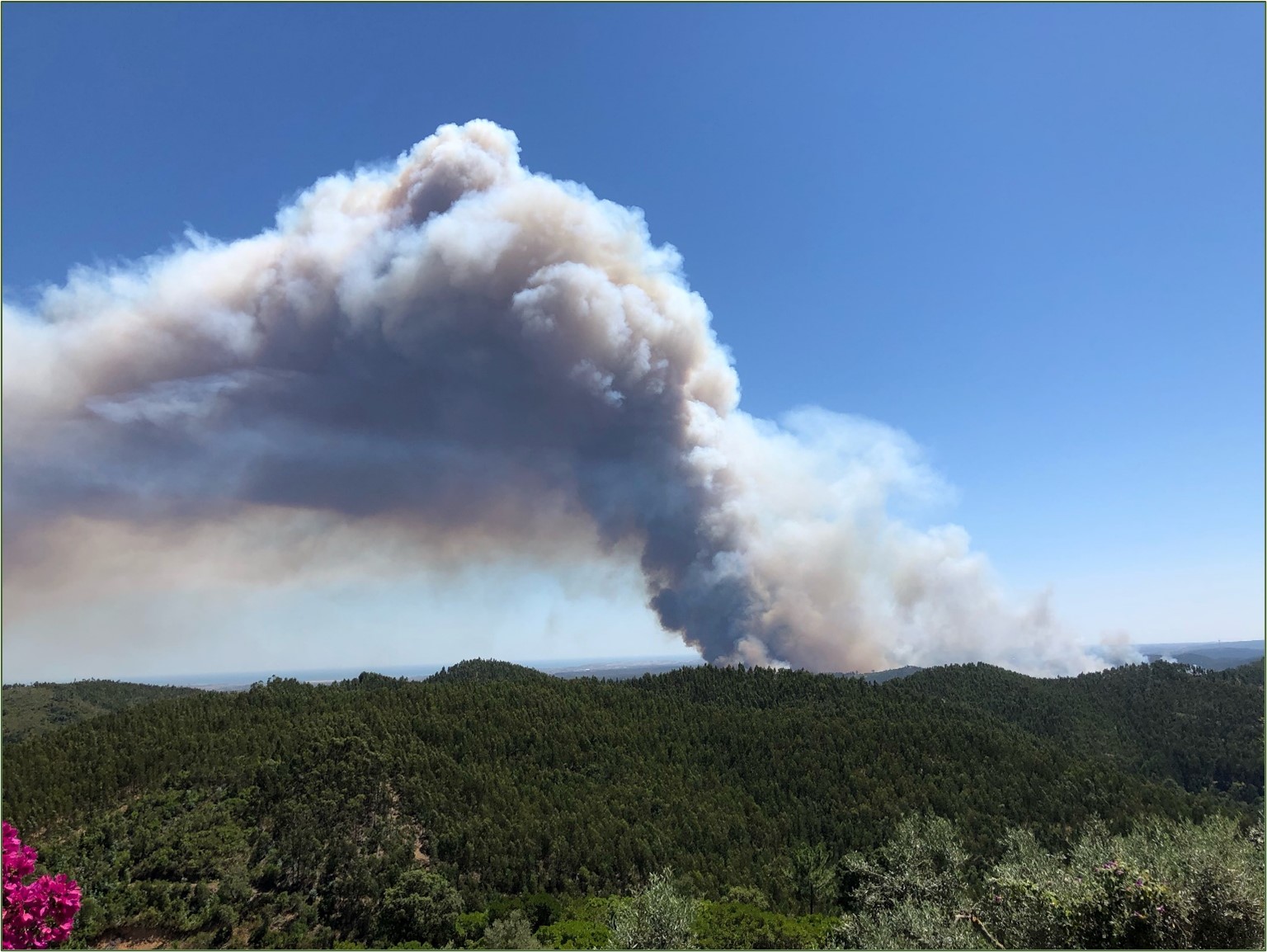
4km away in the surrounding forested hills, one of the dozens of devastating fires that now occur in the region on an annual baisis in the habitat of key enangered species – the iberian lynx and Bonnelli’s eagle - an ecotoursim paradise disappearing on our watch - from my balcony.
Agenda 21 – the Need for Good Governance and the Law of Sustainable Development
I am old enough to have been at the table when in 1992 they established the three Conferences of the Parties on climate, biodiversity and chemicals, which makes me old enough to have seen the dragging of feet and nuancing of final resolutions that has paralysed all the good intentions of those of us who both know enough and care enough to bring good governance to the fore and competently and compassionately confront the spectre of Finance Capitalism and personal greed driving us all over the precipice of economic, environmental and cultural ruin and back to autocratic oppressive privatized state barbarism. At we knew this in the year 2000, when the Law of Sustainable Development (DG Environment 2000) spelt out clearly the large-scale systemic changes that need large-scale systemic responses. Yet no-one seemed to understand, listen or act, and that triple failure of policy makers and captains of industry is now playing out its final hand.

2022 Fire Season Sunset over the BioPark - Horsemen on the Horizon
CoP 27 – Why Bother?
Compared to the discussions on the reform of global governance the CoP 27 debates will resemble a pantomime of suited villains playing doctors and nurses to poor mother nature – note the British fiasco being led by Boris Johnson and Rishi Sunak, both populist right wing attention seekers whose green track records are deplorable - our leaders and other clever people wrapping themselves in the spotlight of media attention to repeat carbon neutral sound-bytes with net-zero value.
So why would I still follow this process when even the key authors of this year’s IPCC report highlight the total inaction and underperformance of government to meet their own targets? I work in the field of travel and tourism and clearly see it is the energy sector that needs to be revolutionised to deal with CO2 outputs, and its often the extractive industries that are decimating the quality of our landscapes and biodiversity alongside the travel and tourism sector, with its luxury and mass tourism models. Multiple sectoral impacts, with multiple thematic consequences, involving multiple stakeholders needing multi-level governance across all sectors. Ours included.
Crying Out for Good Governance – Using ICT- Shaped Territorial Clusters
To meet that complexity, what needs to be developed is a serious good governance plan at all levels to evolve both supply chains and territories in a sustainable direction. Clustering can do that. 2030 Agendas, Green Deals, Transition Pathways and Glasgow Declarations are all well and good, but what the sector needs is a cross-cutting approach to its successful development and management.
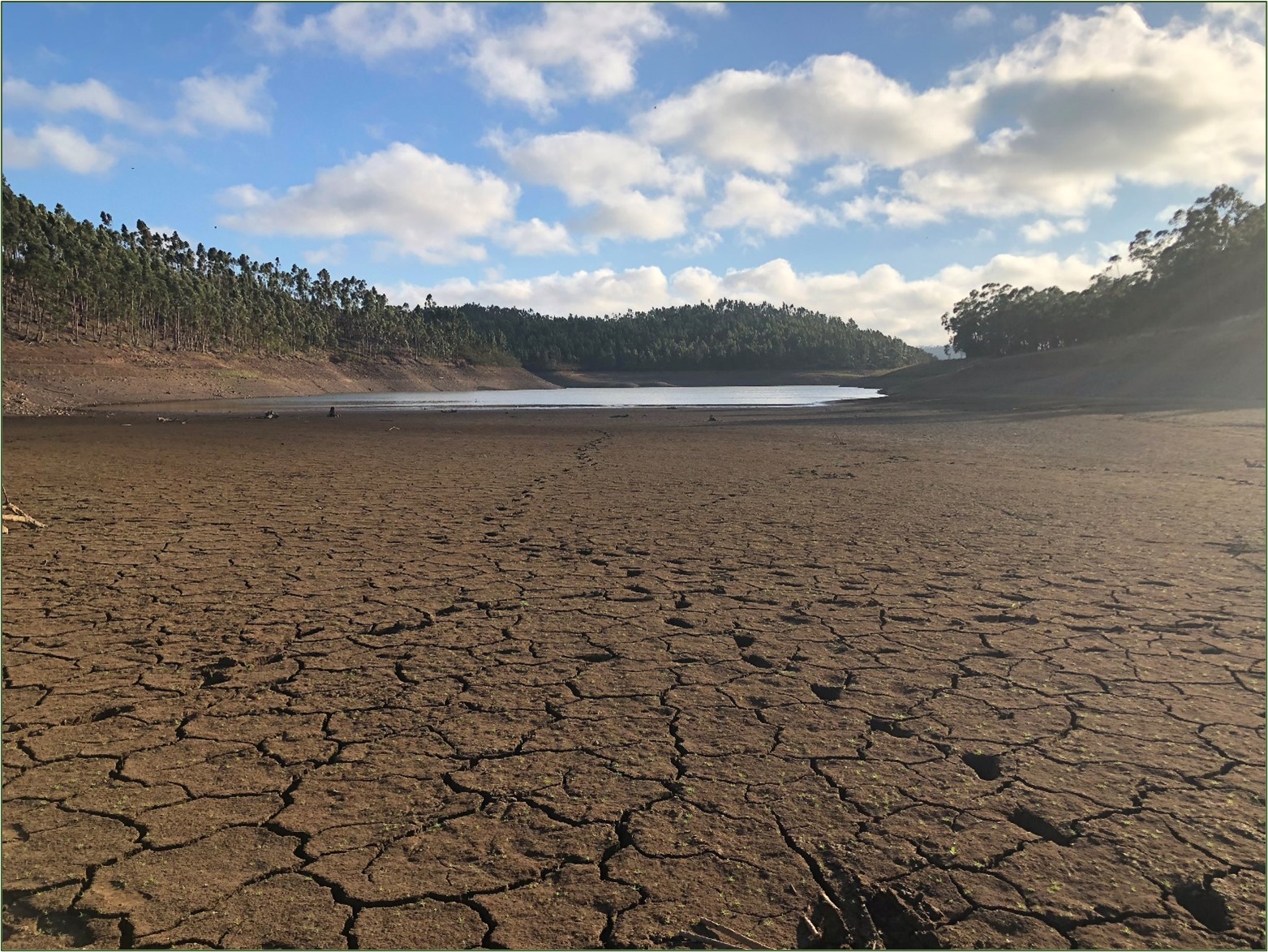
Aridification of key reservoirs across the region, here in the Barragem de Bravura. No water = no biodiversity, no community, no tourism, Full Stop
As such tourism sectoral development activities can be implemented via clusters of stakeholders who can champion regional tourism development. As such tourism sustainability becomes a vector for overall sustainable development, used to organise regional supply chains that link across all sectors and thematic fields. Such clusters of tourism sustainability offers will be in reach of the burgeoning consumer markets of the leisure society that looms for the billions of jobless and homeless.
The Going Green 2030 Agenda – Walking the Walk
The greening of tourism provides green travel, green products and services green jobs, and green destinations. As part of civil society’s efforts to encourage multi-stakeholder collaboration (SDG 17), what we are bringing to CoP27 is not more blah blah blah…but with EU COSME funding in the ETGG 2030 project the Travel Green Planet initiative has matured into an online tourism SME sustainability support system that can be used to develop SCP supply chain certification from the local to global level. The Going Green 2030 SME Sustainability system can be used by business and destinations to check their readiness for 3rd Party certification and entry in to the current 15,000 strong Sustainable Tourism 2030 Market Place. A figure which needs to be 10 times higher by 2030!
It’s about time tourism stakeholders stop believing political fairy tales and understand that to make 2030 a fairy tale ending we need sustainable development as a whole package – Marshall-planned and bank-financed on an international scale to support global civil society, not governments or corporates, and to protect key habitats and species, not pay off bankers and bureaucrats.
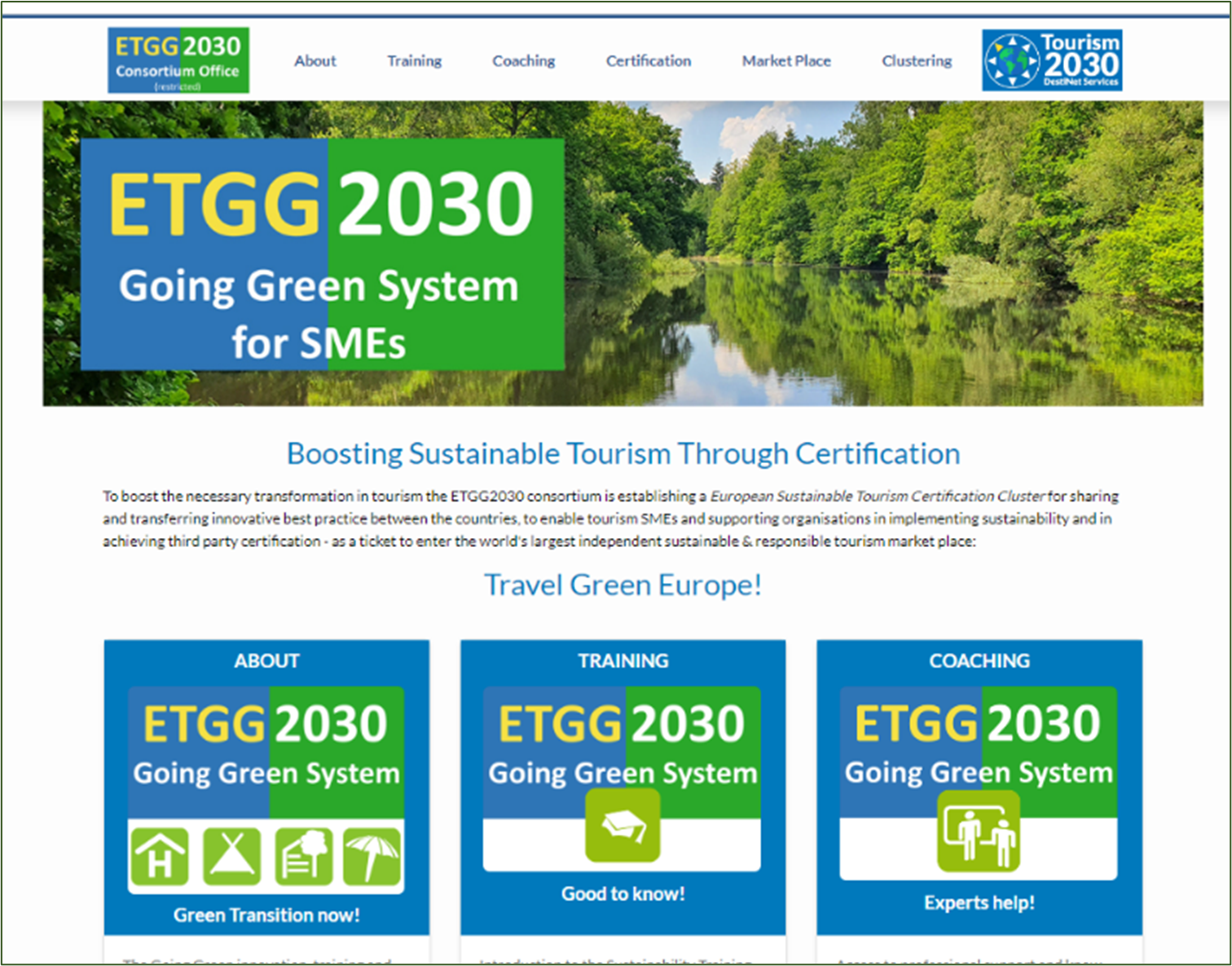
ETGG 2030 Bringing policy lines from the UN SDG Agenda 2030 and EU Green Transition into a practical green business implementation clustered programme
Or, in the onslaught of multiple crises our much-needed tourism businesses in our much-loved destinations – wherever we are – will face fearful uncertainty and fail en masse here and there, now and again, as we saw during Covid. Yet the tourism industry also has a leading role to play in the solution - cutting across sectors and issues, bringing actors together, not altruistically, but with everyone’s self-interest at stake … the desire to travel will never stop, but will the journey be worthwhile? The smart money is on clustering if we are to meet multiple changes, no joined up governance of sustainability implementation is possible without such ICT connected stakeholder networks.
Collaborative action at the regional level to ensure the greening of business supply chains offers the only long-term path to commercial and environmental resilience. If joined up government reigns in the petro-chemical, mining, construction giants, restricts unfettered tourism development, and instead enacts policies and programmes that resource the people to run this one fragile planet regionally and responsibly, and every business plays its part, and every citizen acts accordingly, then we may have a chance to defeat ignorance and enmity, attain community and prosperity and preserve our priceless natural heritage. If tourism stakeholders can help lead the way, then I’m happy to be party to this CoP Out 2022, in our post-covid Winter of Dis-Content, made Summer by the Solar Age to come…
Gordon Sillence (ICT Director Tourism 2030) invites you to a post CoP 27 debrief on Wednesday November 30th. 3.00 – 4.30 pm CET. Please see https://destinet.eu/who-who/civil-society-ngos/travel-green-planet-2030-initiative
Images: from Monchique Natura 2000 Zone Algarve Southern Portugal
CONTACT: gordon.sillence@ecotrans.de
|
|
|
| Address | |
|---|---|
| Keywords | climate change, Biodiversity, good governance |
| Target group(s) | Destinations , Businesses , Governments & Administrations |
| Topics | Climate Change - Energy and Resource Efficiency , Good Governance & CSR , Natural Heritage & Biodiversity , Travel, Transport & Mobility , Value Chain Management & Fair Trade |














































